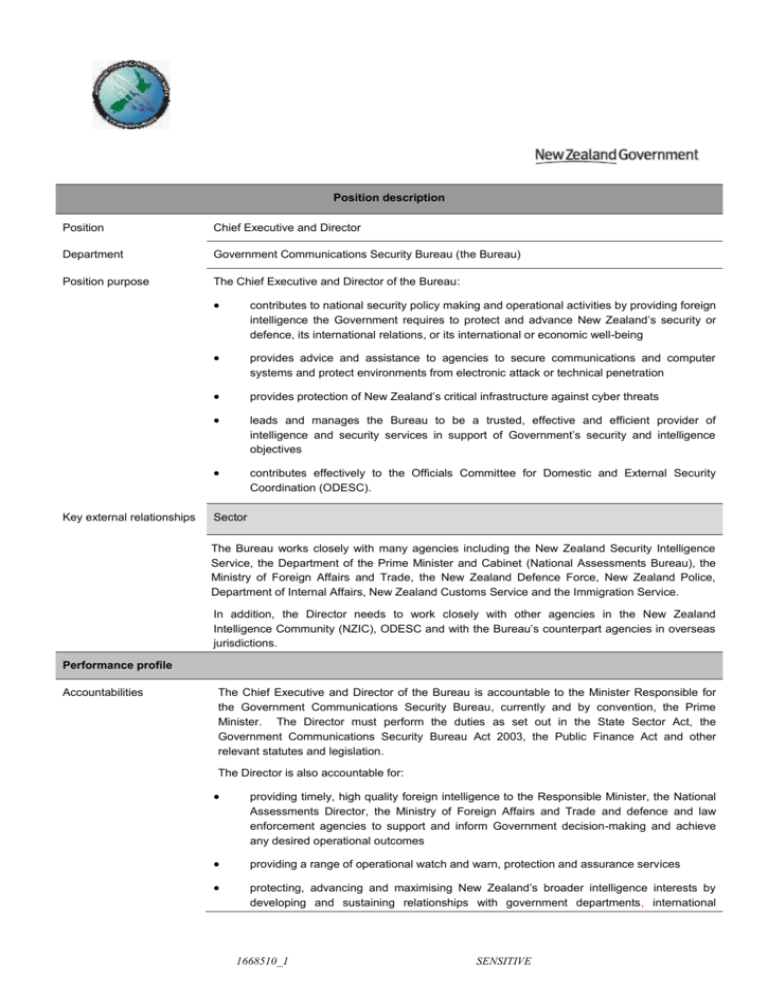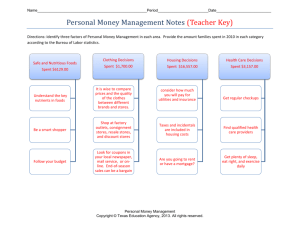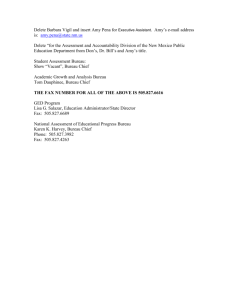
Position description
Position
Chief Executive and Director
Department
Government Communications Security Bureau (the Bureau)
Position purpose
The Chief Executive and Director of the Bureau:
Key external relationships
contributes to national security policy making and operational activities by providing foreign
intelligence the Government requires to protect and advance New Zealand’s security or
defence, its international relations, or its international or economic well-being
provides advice and assistance to agencies to secure communications and computer
systems and protect environments from electronic attack or technical penetration
provides protection of New Zealand’s critical infrastructure against cyber threats
leads and manages the Bureau to be a trusted, effective and efficient provider of
intelligence and security services in support of Government’s security and intelligence
objectives
contributes effectively to the Officials Committee for Domestic and External Security
Coordination (ODESC).
Sector
The Bureau works closely with many agencies including the New Zealand Security Intelligence
Service, the Department of the Prime Minister and Cabinet (National Assessments Bureau), the
Ministry of Foreign Affairs and Trade, the New Zealand Defence Force, New Zealand Police,
Department of Internal Affairs, New Zealand Customs Service and the Immigration Service.
In addition, the Director needs to work closely with other agencies in the New Zealand
Intelligence Community (NZIC), ODESC and with the Bureau’s counterpart agencies in overseas
jurisdictions.
Performance profile
Accountabilities
The Chief Executive and Director of the Bureau is accountable to the Minister Responsible for
the Government Communications Security Bureau, currently and by convention, the Prime
Minister. The Director must perform the duties as set out in the State Sector Act, the
Government Communications Security Bureau Act 2003, the Public Finance Act and other
relevant statutes and legislation.
The Director is also accountable for:
providing timely, high quality foreign intelligence to the Responsible Minister, the National
Assessments Director, the Ministry of Foreign Affairs and Trade and defence and law
enforcement agencies to support and inform Government decision-making and achieve
any desired operational outcomes
providing a range of operational watch and warn, protection and assurance services
protecting, advancing and maximising New Zealand’s broader intelligence interests by
developing and sustaining relationships with government departments, international
1668510_1
SENSITIVE
counterparts and with the New Zealand private sector in relation to cyber security
Critical areas of success
maintaining productive and effective technical links with counterpart offshore agencies
ensuring the Bureau provides an uninterrupted conduit for classified material
maintaining sound relationships with ODESC and those government agencies with roles in
New Zealand’s security and intelligence community
leading the effective management of the Bureau so that it contributes to the achievement
of agreed outcomes, now and in the future, by developing the Bureau to fulfil its roles in a
constantly changing environment
ensuring the Bureau maintains a very high degree of technical proficiency
modelling leadership and collegial behaviours within the wider State sector to achieve
cross sector and whole of government outcomes
Over the next two to three years the Director will be required to:
ensure the co-location of intelligence functions within Pipitea House leads to a significant
improvement in NZIC collaboration
develop the National Cyber Security Centre into a centre of technical excellence
ensure an uninterrupted and effective NZICNet service to NZIC members
achieve internal structural changes with minimum impact on the status of critical functions
contribute to changes in the institutional arrangements of the security and intelligence
community to ensure they are effective
develop a new public profile for the Bureau including a communications strategy
demonstrate that the Bureau is delivering value-for-money to the taxpayer, including
through the generation of ongoing improvements in efficiency and effectiveness
continue a strong leadership role in building and maintain collaborative relationships with
other jurisdictions, government agencies and the private sector
build the capability of the Bureau with particular focus on developing staff and planning
management succession.
Position specific
competencies
The descriptors1 below summarise the competencies in which the Director of the Government
Communications Security Bureau will need to be skilled.
Strategic skills
The Director will possess a depth and breadth of knowledge. He/she will be intellectually sharp,
and will deal with concepts and complexity comfortably. He/she will have a strong grasp of key
trends and issues facing the Bureau and the NZIC.
Operating skills
The Director will create strong teams across NZIC by empowering people, fostering open
dialogue, effectively allocating resources and ensuring that individuals work together. He/she will
use teams to work across boundaries and accomplish integrated tasks and sustained coordinated
efforts.
Energy and drive
1
The Director will consistently demonstrate energy and drive for better results. He/she doesn’t
give up in the face of resistance or setbacks, however he/she is also willing to adapt his/her
approach if necessary to achieve the desired result. He/she consistently and constantly strives
for better performance, balanced with a concern for people and due process.
These skill descriptions are based on Lominger International’s LEADERSHIP ARCHITECT Competency Sort Cards, Copyright 1992, 1996,
2001-2003 Lominger Limited, Inc., a subsidiary of Korn/Ferry International ALL RIGHTS RESERVED, and are used with the express permission of
Lominger International.”
1668510_1
SENSITIVE
2
Courage
The Director can be counted on to step up when times are tough. He/she anticipates potential
conflicts and make conscious choices about the approach they will take. He/she is willing to take
the lead on controversial issues. They read situations and people accurately.
Personal and
interpersonal skills
The Director will have highly developed personal and interpersonal skills. He/she will build
relationships of trust and respect with colleagues, Ministers and staff. He/she is collaborative and
values others’ contributions. He/she will create a climate in which people feel motivated to do
their best and where people like working for and with him/her. He/she is dedicated to meeting the
expectations and requirement of Ministers and acts consistently with those expectations and
requirements in mind.
Organisational positioning
skills
The Director will understand the political and organisational context within which he/she works.
He/she is sensitive to political processes and anticipates risks and how others may respond.
He/she can manoeuvre through complex political situations effectively and quietly whilst
maintaining appropriate standards of political neutrality. He/she knows how to get things done
within the political and organisational context, understands the origin and reasoning behind key
policies, practices and procedures and observes legality and propriety of GCSB functions.
Acting with honour and
integrity
The Director will maintain the highest standards of personal integrity and will promote such
standards throughout the Bureau.
Security clearance
The appointee must be a New Zealand citizen. Appointment will be subject to a New Zealand
Government Top Secret Special security clearance.
Departmental profile
Department
Government Communications Security Bureau
Responsibilities
The Bureau is responsible for:
Outcomes
obtaining, correlating and evaluating intelligence relevant to security
communicating it to those that the Director considers appropriate, in the interests of security
advising the Government about matters relevant to security
cooperating with other organisations in New Zealand and abroad that can assist the Bureau to
carry out its job
The Bureau supports Government in maintaining a state where the Government and individual New
Zealanders can pursue their objectives untroubled by fear or danger.
The Bureau achieves this through the provision of timely and relevant foreign intelligence and
information assurance advice.
Staff
1668510_1
As at 31 December 2010, close to 300 staff were employed by GCSB.
capability enhancement will see these numbers rise by a small number.
SENSITIVE
An imminent intelligence
3
Organisation
Director
GCSB
Office of the
Director
General Manager,
Information
Assurance &
Cyber
Information
Assurance
Cyber
Security
General Manager
Intelligence
Signals
Intelligence
Geospatial
and Imagery
Intelligence
General Manager,
Mission
Enablement
Corporate
Services
Information and
Communications
Technology
Services
Appropriations:
Vote Communications Security and Intelligence
Details of Annual and Permanent Appropriations
2010/11
Titles and Scopes of Appropriations by Appropriation Type
Intelligence and Security Department Expenses and Capital Expenditure
53,581
Communications Security and Intelligence (M60)
This appropriation is limited to the operating and investing activities of the Government
Communications Security Bureau.
Total Intelligence and Security Department Expenses and Capital Expenditure
53,581
Total Annual and Permanent Appropriations
53,581
1668510_1
SENSITIVE
4






